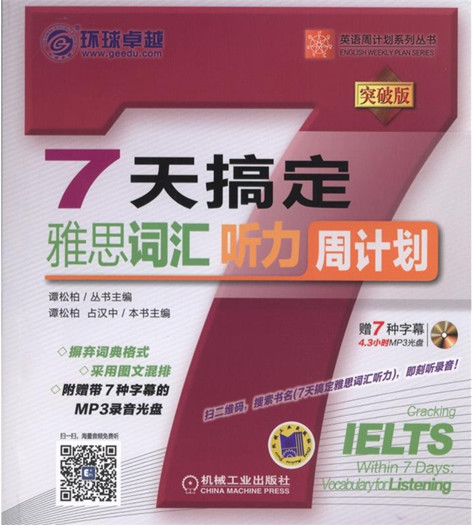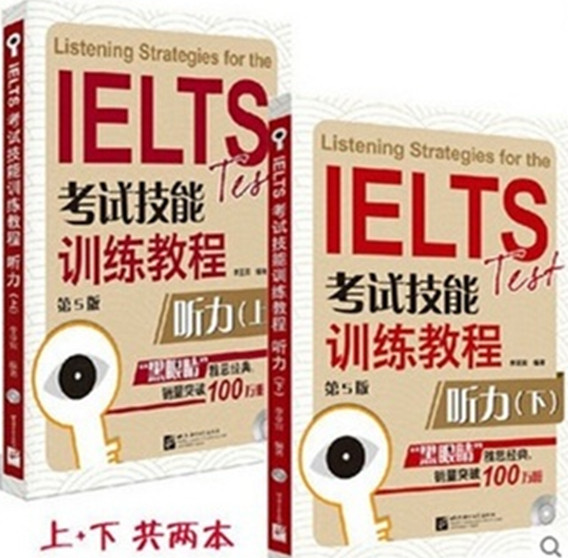2018年6月23日雅思阅读真题回忆及解析
一、考试概述:
今天考试配对题仍然占了很大的比重,不过也有最简单的填空题搭配着,所以考试的总体难度不高。其实,第二篇和第三篇阅读都是旧文章,以前练习过相关题目的同学占有很大优势。整体来说,今天考试的同学阅读方面赚到了。
二、具体题目分析
Passage 1:
题目: Dinner of Rome 2000 Years Ago罗马晚宴
题型: 7判断题+6填空题
题号:新题
文章大意:文章主要讲罗马人就餐和宗教的联系,在文学场景中的体现,以及餐厅、饭桌的布置等。
参考答案:
1-7) 判断题
1. NOT GIVEN.没提到Rome第一个将仪式和晚宴联系到一起。
2. TRUE.某些庆典是为了社会的所有人。
3. TRUE.文学中有consistent的体现。
4. FALSE.
5. FALSE.大家共用一张桌子,所以题目中每个人都有自己的桌子,是错的。
6. NOT GIVEN.文章中只提到了木头贵,没有提到最贵,所以bronze是most expensive没有提到。
7. TRUE.
8-13) 判断题
8. s开头的一个单词
9. affluence.
10. decorative.
11. spoon.
12. pottery.
13. a开头的一个单词
(答案仅供参考)
参考文章:暂无
Passage 2:
题目:Amateur Naturalists业余自然者
题型:6段落信息配对题+4填空题+3选择题
题号:旧题
文章大意:业余自然爱好者对科学做出的贡献、测量方法有可能不专业,衡量业余自然爱好者测量方法的新技术等。
参考答案:
14-19) 段落信息配对题
14. B. The definition of phenology
15. C. How Sparks first became aware of amateur records
16. E. Records of a competition providing clues for climate change
17. G. A description of using amateur records to make predictions
18. H. How people reacted to their involvement in data collection
19. A. A description of a very old record compiled by generations of amateur naturalists
19-22) 填空题
20. beekeeping。
21. life cycles。
22. competition。
23. droughts。
24-26) 选择题
24. C。科学家为何不新人业余者收集的数据?因为业余者数据不可靠。
25. D。Mark Schwartz使用叶子的例子是为了说明:珍贵的信息通常是精确的。
26. A。科学家建议业余数据如何使用?利用改善的方法使用。
(答案仅供参考)
参考文章:
Amateur Naturalists
You should spend about 20 minutes on Question 14-26 which are based on Reading Passage below.
A
Tim Sparks slides a small leather-bound notebook out of an envelope. The books yellowing pages contain beekeeping notes made between 1941 and 1969 by the late Walter Coates of Kilworth, Leicestershire. He adds it to his growing pile of local journals, birdwatchers' lists and gardening diaries, "We're uncovering about one major new record each month,” he says, “I still get surprised." Around two centuries before Coates, Robert Marsham, a landowner from Norfolk in the east of England, began recording the life cycles of plants and animals on his estate when the first wood anemones flowered, the dates on which the oaks burst into leaf and the rooks began nesting. Successive Marshams continued compiling these notes for 211 years.
B
Today, such records are being put to uses that their authors could not possibly have expected. These data sets, and others like them, ire proving invaluable to ecologists interested in the timing of biological events, or phenology. By combining the records with climate data, researchers can reveal how, for example, changes in temperature affect the arrived of spring, allowing ecologists to make improved predictions about the impact of climate change. A small band of researchers is combing through hundreds of years of records taken by thousands of amateur naturalists. And more systematic projects have also started up, producing on overwhelming response. "The amount of interest is almost frightening," says Sparks, a climate researcher at the Centre for Ecology and Hydrology in Monks Wood, Cambridgeshire.
C
Sparks became aware of the army of "closet phenologists", as he describes them, when a retiring colleague gave him the Marsham records. He now spends much of his time following leads from one historical data set to another. As news of his quest spreads, people tip him off to other historical records, and more amateur phenologists come out of their closets. The British devotion to recording and collecting makes his job easier - one man from: Kent sent him 30 years' worth of kitchen calendar, on which he had noted the date that his neighbour's magnolia tree flowered.
D
Other researchers have unearthed data from equally odd sources. Rafe Sargarin recently studied records of a betting contest in which participants attempt to guess the exact time at which a specially erected wooden tripod will fall through the surface of a thawing river. The competition has taken place annually on the Tenana River in Alaska since 1917, and analysis of the results showed that the thaw now arrives five days earlier than it did when the contest began.
E
Overall, Such records have helped to show that, compared with 20 years ago, a raft of natural events now occur earlier across much of the northern hemisphere, from the opening of leaves to the return of birds from migration and the emergence of butterflies from hibernation . The data can also hint at how nature will change in the future. Together with models of climate change, amateurs' records could help guide conservation. Terry Root, an ecologist at the University of Michigan in Ann Arbor, has collected birdwatchers' counts of wildfowl taken between 1955 and 19% on seasonal ponds in the American. Midwest and combined them with climate data and models of future warming. Her analysis shows that the increased droughts that the models predict could halve the breeding populations at the ponds. "The number of waterfowl in North America will most probably drop significantly with global warming," she says.
F
But not all professionals are happy to use amateur data. "A lot of scientists won't touch them, they say they're too full of problems," says Root. Because different observers can have different ideas of what constitutes, for example, an open snowdrop. The biggest concern with ad hoc observations is how carefully and systematically they were taken," says Mark Schwartz of the University of Wisconsin, Milwaukee, who studies the interactions between plants and climate. "We need to know pretty precisely what a person's been observing - if they just say 'I noted when the leaves came out', it might not be that useful." Measuring the onset of autumn can be particularly problematic because deciding when leaves change color is a more subjective process than noting when they appear.
G
Overall, most phenologists are positive about the contribution that amateurs can make. "They get at the raw power of science: careful observation of the natural world," says Sagarin. But the professionals also acknowledge the need for careful quality control. Root, for example, tries to gauge the quality of an amateur archive by interviewing its collector. "You always have to worry things as trivial as vacations can affect measurement. I disregard a lot of records because they're not rigorous enough," she says. Others suggest that the right statistics can iron out some of the problems with amateur data. Together with colleagues at Wageningen University in the Netherlands, environmental scientist Arnold van Vliet is developing statistical techniques to account for the uncertainty in amateur phenological data. With the enthusiasm of amateur phenologists evident from past records, professional researchers are now trying to create standardized recording schemes for future efforts. They hope that well-designed studies will generate a volume of observations: large enough to drown out the idiosyncrasies of individual recorders. The data are cheap to collect, and can provide breadth in space, time and range of species. "It's very difficult to collect data on a large geographical scale without enlisting an army of observers," says Root.
H
Phenology also helps to drive home messages about climate change. "Because the public understand these records, they accept them," says Sparks. It can also illustrate potentially unpleasant consequences, he adds, such as the finding that more rat infestations are reported to local councils in warmer years. And getting people involved is great for public relations. "People are thrilled to think that the data they've been collecting as a hobby can be used for something scientific -it empowers them," says Root.
Questions 14-19
The reading Passage has seven paragraphs A-H
Which paragraph contains the following information?
Write the correct letter A-H, in boxes 27-33 on your answer sheet
14. Definition of Phenology introduced
15. How Sparks first became aware of amateur records
16. Records of a competition providing clues for climate change
17. A description of using amateur records to make predictions
18. How people reacted to their involvement in data collection
19. A description of a very old record compiled by generations of amateur naturalists
Questions 20-22
Complete the sentences below with NO MORE THAN TWO WORDS from the Reading Passage for each answer. Write your answers in boxes 34-36 on your answer sheet.
20. In Waiter Coates' records, there are plenty of information of .
21. Robert Marsham is well-known for noting animals and plants' .
22. The number of waterfowl in North America decreases because of increased according to some phenologists.
Questions 23-26
Choose the correct letter, A, B, C, or D.
Write your answers in boxes 37-40 on your answer sheet
23 Why do a lot of scientists question the amateurs’ data?
A. Data collection is not professional
B. Amateur observers are careless.
C. Amateur data is not reliable sometimes.
D. They have one-sided work experience
24 Example of leaves Mark Schwartz used to explain that?
A. Amateur records arc not reliable at all.
B. Amateur records arc not well organized.
C. Some details are very difficult to notice.
D. Valuable information is accurate one.
25 What suggestion of scientists for the usage of amateur data?
A. Use modified and better approaches.
B. Only Observation data is valuable.
C. Use original materials instead of changed ones.
D. Method of data collection is the most important.
26 What's the implication of phenology for ordinary people?
A. It enriches the knowledge of the public.
B. It improves ordinary people's relations with scientists.
C. It encourages people to collect more animal information.
D. It arouses public awareness about climate change.
- 12-17·2018年12月15日雅思阅读考试回忆及解析
- 12-15·2018年12月15日雅思阅读考后回忆(网友版)
- 12-14·2018年12月13日雅思阅读真题回忆(网友版)
- 12-08·2018年12月8日雅思阅读考试真题回忆
- 12-03·2018年12月1日雅思阅读考试回忆及解析
- 12018-12-172018年12月15日雅思阅读考试回忆及解析
- 22018-12-152018年12月15日雅思阅读考后回忆(网友版)
- 32018-12-082018年12月8日雅思阅读考试真题回忆
- 42018-12-032018年12月1日雅思阅读考试回忆及解析
- 52018-12-032018年12月1日雅思阅读考后回忆
编辑推荐
- 模拟试题
- 历年真题





